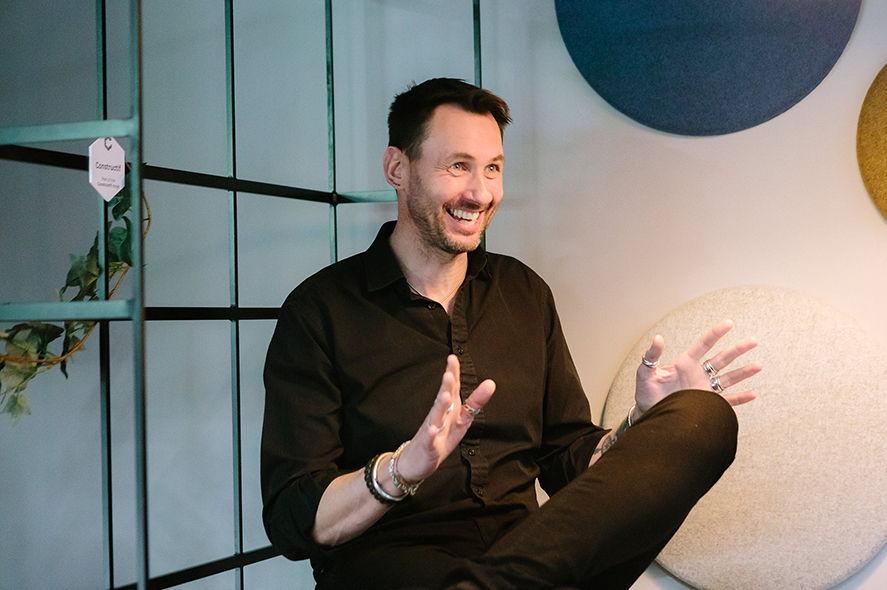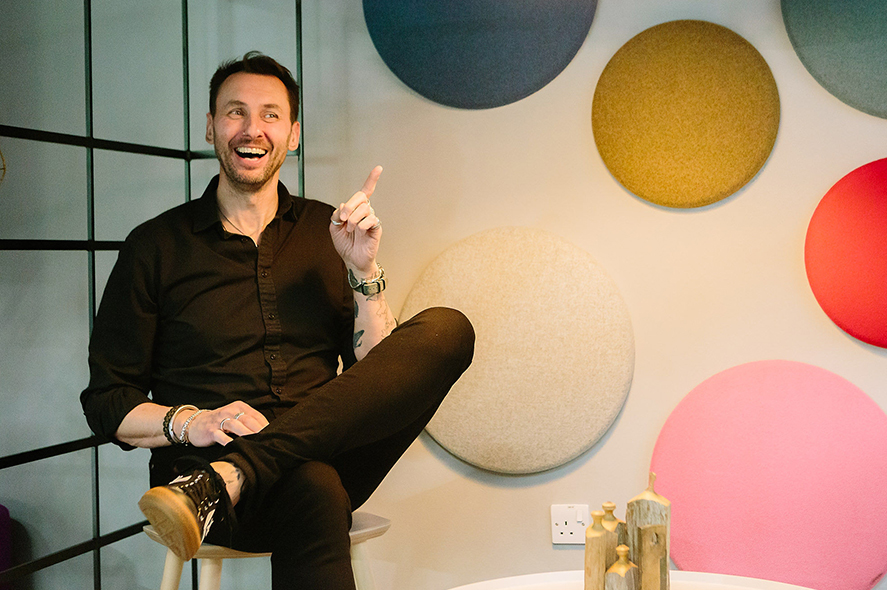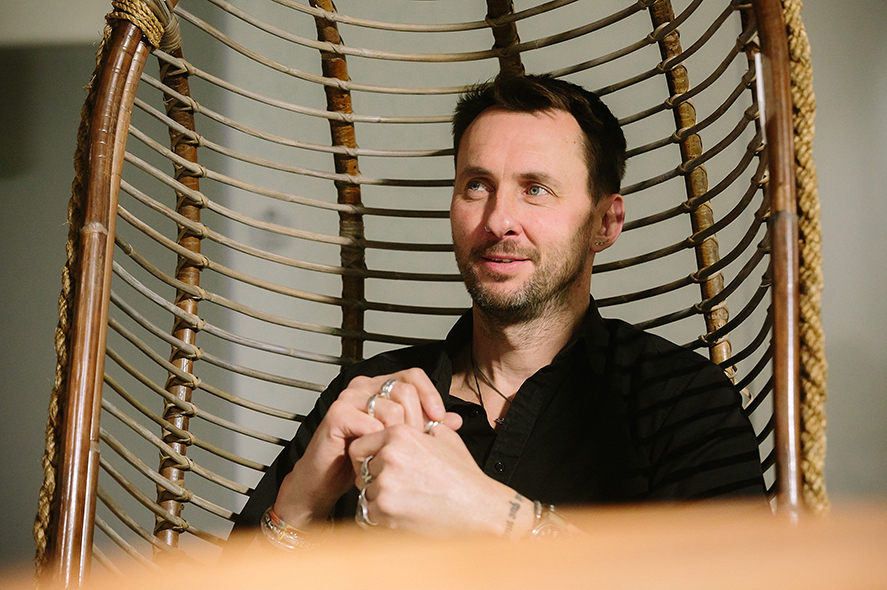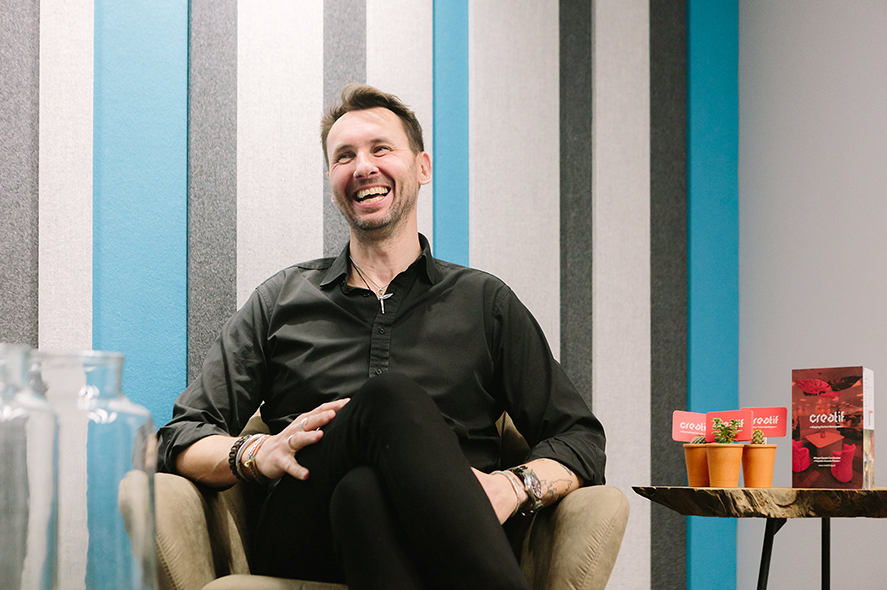|
With an extensive career that spans the private and charity sectors, the civil service and the military, Christopher Allen has developed and honed an ability to understand people, work cultures and how we can live and work better. Chris has previously worked for Morgan Lovell and CBRE and in 2017, he established his own company, MONTROC Consulting, that focuses on workplace transformation, ways of working and wellbeing programmes.
We caught up with Chris to learn why workplace anthropologists are an essential component of designing successful workspaces. Creatif: Your career began in the military but what lead you to the design and build and fitout sector? CA: I was an Officer in 7th Parachute Regiment Royal Horse Artillery and latterly a Directing Instructor at the UK Defence Academy. These involved doing something the military used to call IPE which was ‘Intelligent Preparation of the Environment’. I taught army majors everything from strategy to operations, people and change management. I knew from having previously studied geography that I had a real interest in people from an anthropological point of view and learning what makes [us] tick. Creatif: What did your role in CBRE involve? CA: Joining CBRE was really helpful because I gained invaluable insight into global corporate business and learnt a huge amount from leaders who inspired me and who contributed to my smooth transition from the Army. Fifty percent of my role was leading a team of Workplace Consultants and the other fifty percent was winning and delivering new projects. I spent my first three years working predominantly with Cisco, running their global change programme all over Europe, the Middle East and Latin America.
Having spent twenty years dealing with ‘strategic shock’, I didn’t mind if someone said; “can you be in Mexico tomorrow?” An agility of mind is something I encourage in others and is key to the future of work. Creatif: Do you think your approach to workplace management differs to that of others in your industry? CA: Yes, I do. I have a very clear set of priorities that is the drive for every single project. People come first…there is not one single aspect of business that will not benefit from a happy, trusted, purpose driven and well workforce. Space and technology, whilst hugely important, will always come second to people for me. I have seen few companies who are creating genuinely human-centred workplaces and getting this right. I also believe in investing in thorough leadership and management training so that a business’ vision and strategy permeate the company, resulting in a great culture and maximum success. I have seen few companies who are creating genuinely human-centred workplaces and getting this right. Creatif: What can a Workforce Protagonist provide for Design and Build companies? CA: D&B companies design and build amazing workspaces, but it can easily be a case of ‘form over function’ if you don’t thoroughly understand the people and/or the organisation. There are so many factors [you need to comprehend]: why a business exists, what their purpose is, what the vision is, their values, and therefore, the behaviour and culture that comes out of this. Only if you can bring all of that together - and harmoniously combine it with space and technology - can you provide the greatest outcome for the workforce and therefore the company.
As a 'Workforce Protagonist', I see that as my primary role. There’s a huge gap in the market for workplace management consultants because it’s essential that someone is first talking to the C-Suite, then to facilities management, human resources and the head of procurement etc. Without significant challenge to and engagement with senior leaders you’re missing out on the whole strategic vision and therefore delivering something that’s not fit for purpose.
|
Creatif: Do you see the future of the workplace being satellite offices or coworking spaces? CA: I think it’s a mixture and we’re starting to see that. Both are great, so combine them! Essentially, I think the future of the workplace is in choice, and a trained and happy workforce will be well qualified in making the right choices at the right times - to suit both themselves, their company, and their work/life balance. I use a coworking space in Bath, and encourage my team to use them as well. When they get there, they will be provided with the things they need to be happy and productive, whether that’s food, social interaction, a decent printer – whatever it is, they choose to go to that place. A big factor in this is that we can’t necessarily afford to move to a new house when we move jobs anymore. Neither do people want to commute. So, if times are changing, it's important to move with them. However, it's not without risk. Many would prefer to work in a coworking space, but then become disconnected from the people they work best with. A lot of good work takes place during that chance conversation at the water machine. This is where business cadence, technology and understanding how you as an organisation operate solves the problem. People create amazing destination workplaces, but if worker A works from home on Mondays and worker B only comes in on Wednesdays and Thursdays, then clearly productivity can be compromised. We can all use Cisco Webex boards or Zoom, and that's great, but not in isolation. Organisations are spending millions of pounds creating amazing workspaces and installing phenomenal technology but that's just 2 sides of the 'enabling' triangle. By not spending money on updating their policies and procedures, their working practices or training their managers or the leadership team, they are missing the most important third side. Creatif: When you provide workers A and B with flexible working, isn’t there then a trade off? CA: Yes, there can be so this becomes a case of getting the right balance between freedom and constraints. Give people freedom and they will do more. Give them constraints, such as rules or protocols (especially unnecessary ones!) and they will do less.
More than ever, people need candour in the workplace, career ownership, output focused objectives, and structure. But I'm saying that it can come from a different approach, for example 'Meet-up-Mondays'. This battle rhythm is set so that people understand where and when they can best interact in order to do the job the company is paying them for. That doesn’t mean you can’t break it, it’s simply a structure to facilitate curiosity and bracket the ‘freedoms’. So, what does the future workplace look like? I heard the following recounted recently which I think sums up the space and technology aspects pretty well: Fewer gimmicks, communal work-areas surrounded by breakouts, easy access to the virtual world without being tech dominated, welcoming spaces, spaces for collaboration, spaces for peace and quiet, a healthier design, less noise, less distraction. But much depends on companies embracing a more people-focused way of working by providing genuine psychological safety, delivering on happiness and better work-life integration and translating it into meaningful productivity. I think the struggle for organisations starting to grasp this is that they know they need to have somewhere where their people can collaborate in person whenever they choose. Which brings us straight back to our magic triangle of people, space, technology. Brand identity may be lost as soon as you walk in to a coworking space - your brand, values and culture are so intricately linked, and so important, yet we allow people in to coworking spaces which could erode the culture of the organisation if handled badly. This will be an interesting question: as things become more fluid and people take-up the option to work in different places in different ways, we will all need to work out what structure and cadence works for us. My advice is to meet these issues head on - ignore them at your peril! We’re all still figuring out the answers, but it’s certainly exciting to see where it leads. |



